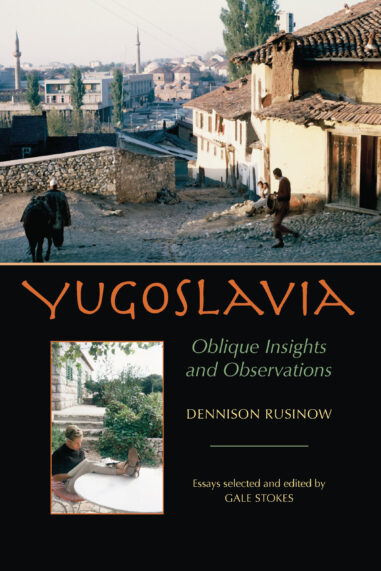
Paperback $60.00
Also available in Kindle
Request Exam or Desk Copy. Request Review Copy
Yugoslavia
Oblique Insights and Observations
For decades, Dennison Rusinow was a source of profound, unique, and real-time insights into the unfolding tragedy of Yugoslavia. He was trained as an historian, naturally gifted as a journalist, and supported by an intrepid family that shared with him the experience of living in the country he knew so well. Just as Rusinow's dispatches, analytical reflections, and lectures shed light on what was happening in the Balkans when he was on the scene, this book will long stand as a source of wisdom about one of the more consequential episodes of the twentieth century.

